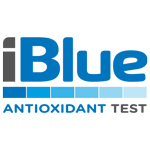If you’re an exercise addict, it’s even more important for you to know your antioxidant level. You need to pay attention not only to excessive free radicals, but also to over-use of antioxidant supplements.
Do you head straight to the gym as soon as you’ve finished work? Do you ever wear yourself out with extreme work-outs involving every machine under the sun? Or maybe you’re a runner or a cyclist who can’t wait to get out there and eat up the miles? Are you in a never-ending battle with yourself to exceed your limits?
It all means you care about having a fit, healthy body. Sport helps our body stay young and efficient, prevents multitudes of problems and also helps release endorphins, a natural mood lifter. However, as in all things, it’s best not to overstretch yourself, or you could do yourself more harm than good.
When working out, especially with heavy training loads, our energy requirement rises considerably. And so does our need for oxygen. This element is essential for life but is highly reactive, and is responsible for the formation of the much-detested free radicals (especially reactive oxygen species – ROS).
You should bear this in mind, especially if a weekly game of 5-a-side with friends or the same old Zumba lesson doesn’t do it for you, and you’re are always striving to improve your performance.
Overtraining and oxidative stress
In both competitive and non-competitive sports, a long training session at (or near) your limits triggers the production of a higher than normal number of free radicals, proportional to the intensity and duration of the exercise. This is true for both aerobic and anaerobic activities.
If overtraining causes your free radicals to exceed a certain threshold, they trigger a condition of oxidative stress. This means that your natural antioxidant mechanisms are unable to completely “neutralise” these harmful molecules. And eventually, your antioxidant reserves are depleted.
Oxidative stress in fitness enthusiasts, especially if persistent:
- can reduce performance
- is involved in progressive tissue degradation due to physical activity
- can cause sore muscles
- can slow muscle recovery
And that’s without considering that oxidative stress, facilitated by other factors such as pollution, exposure to UV rays, smoking, alcohol and various medicines, can alter the very structure of our cells and DNA. It’s no wonder that it’s implicated in numerous diseases, can activate inflammatory processes, and leads to weakening of the immune system and premature skin ageing.
Antioxidants: yes or no? Measure them first!
If you’re serious about your exercise, to avoid excess free radicals you might be “overusing” antioxidant supplements without question, hoping to avoid a drop in your performance and enable a quicker recovery by protecting yourself against oxidative stress.
However, free radicals have a precise biological function. They are absolutely essential, for example, for cellular energy metabolism and to improve the immune defences. So wiping them out altogether by taking massive doses of antioxidants indiscriminately is unconstructive. In fact, it might even have highly negative effects.
On the other hand, it’s hard to get all the antioxidants (vitamins E and C, zinc, selenium, anthocyanin, etc.) you need to combat overtraining from your diet. It’s true that sports enthusiasts usually take care to eat healthily, but their diets are often too restrictive. Unless you are perfected by a professional, you risk depriving your body of essential nutrients… causing more oxidative stress.
So sports addicts need to go a step further!
Before taking any supplements or modifying your diet through trial and error, measure the precise level of antioxidants in your body. No more tests or waiting: with a handy home test, you can now have the results in just 5 minutes.
So you can find out if your antioxidants are also in peak condition, just like you.

